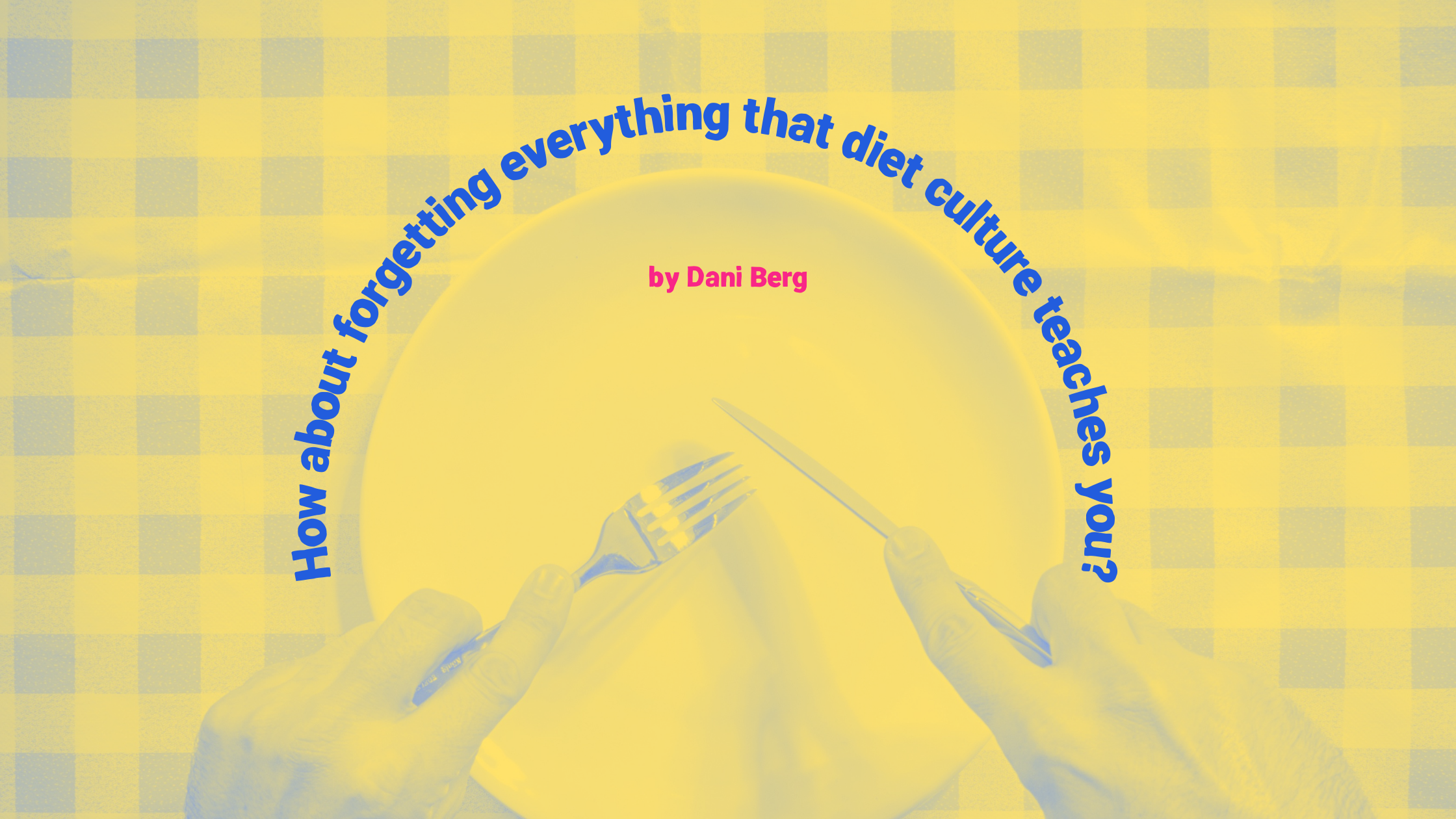How about forgetting everything that diet culture teaches you?
Kim Kardashian lost 16 pounds to fit into a dress for the Met Gala last May through a severe and painful diet. It was not an ordinary dress, but Marilyn Monroe’s worldwide famous 'Happy Birthday, Mr. President' dress.
Some people accused her of damaging the iconic piece. Others blame her for negatively influencing thousands of followers, and encouraging unhealthy attitudes, especially among those suffering from eating disorders.
I remember reading a curious news piece on that occasion. Shortly after the event, Ms. Kardashian treated herself to an overdose of donuts and pizzas. "Guys, I haven't had carbs or sugar in almost a month — definitely three weeks," she said.
The outcome of this diet couldn't be any different. As experts in eating behavior warn, radicalism and prohibitions linked to food usually lead to overeating. When you deprive your body of certain types of food, such as sugar, fat, or carbs, you can increase the desire for it and have no control when you finally eat it.
Some might argue that Kim Kardashian's attitudes towards food and diet are just entertainment — we shouldn't take it seriously. But I would use it as a good sample of how troubled our relationship with food — especially among women — is.
In the last few decades, we have accepted certain things as "normal" to lose a few pounds. But it has cost us physical and mental health damages.
Diet behaviors that are normalized (But they shouldn't)
There are lots of behaviors that we do (some of them unconsciously) to make sure that we are not gaining weight. There is so much evidence that science already gave a name for it: "disordered eating."
Among the best-known habits are skipping meals, practicing long-term fasts without nutritionist supervision, counting the calories or weight of everything you consume, stepping on the scale several times a day, and taking slimming drugs without a medical prescription.
Other common behaviors are always being on a diet, never allowing yourself to eat what you like, and being extreme about the type and the amount of food you ingest daily. I bet you recognize yourself doing at least two or three items from this list.
And I will not even start discussing fads and popular beliefs that every now and then are spread in groups of friends, family dinners, and magazine covers. But I could not resist writing about some of them: morning shots, superpower coffees, detox diets and cleanses, teas and shakes, and an uncountable number of "slimming miracles" with no scientific evidence.
Not to mention the fear of eating carbs after 8 pm, of being in an event where there is no "healthy food," of overeating during the weekend. This fear feeds an overeating-followed-by-guilt cycle, and many people try to punish themselves by starving or working out to exhaustion.
The so-called "disordered eating" is not a diagnosed condition, so it's not in the Diagnostic and Statistical Manual of Mental Disorders (DSM-5-TR) as other disorders like anorexia, bulimia, and binge-eating. It is also not comparable to orthorexia, which is not classified as an eating disorder either, but it is well-identified by an obsession with "clean" (known as "healthy") foods.
Nonetheless, some specialists argue that the repetition of some seemingly harmless behaviors towards food could lead to an eating disorder.
The thing is: this set of habits is not enough to fill a diagnosis. But I see this is terrible news for our mental health. When you feel that this kind of thought is something that "everybody has," is "normal," or "not risky," it's challenging to realize how much they invade our minds.
We cannot see how this mindset impacts our body image, self-esteem, and relationship with food. Overall, if even Kim Kardashian is not happy with her self-image, to the extent of starving herself, how can we be pleased with our "ordinary, non-celebrity" appearances?
Extreme diets bring plenty of negative consequences for our physical health. Besides, studies show that most dieters regain the weight they lose. These oscillations on the scale lead to a 'yo-yo' effect cycle, which can increase abdominal fat accumulation and trigger many other metabolic effects.
Talking about mental health: how much time and energy do we waste with these thoughts? We should not feel guilty for overeating sometimes, overthinking about calories and the pounds we "should" lose before next summer to wear a bikini.
To conclude, I would like to cite the social damage that diet culture brings us. How many opportunities do we lose when focused on eating the "right" amount of food? As the psychology professor, speaker, and body image researcher, Renee Engeln wrote in "Beauty Sick":
"Women who engage in restrictive diets don't just face the emotional burden of chronic hunger. They also risk losing touch with the community building and social connections that are so often fostered through shared meals. Dieting can be a recipe for loneliness and isolation."
I love that sentence. Life is short to spend our time counting calories.
I'm not saying we should eat without control, not worrying about the quality of the nutrients we ingest. Or that I don't think it's essential to plan our meals and try, at least, to eat in a balanced way.
It's the opposite. We should give food the actual worth that it has. Let's honor that we still have plenty of choices in an unequal and post-pandemic world, not trivializing eating — much less the act of starving.

